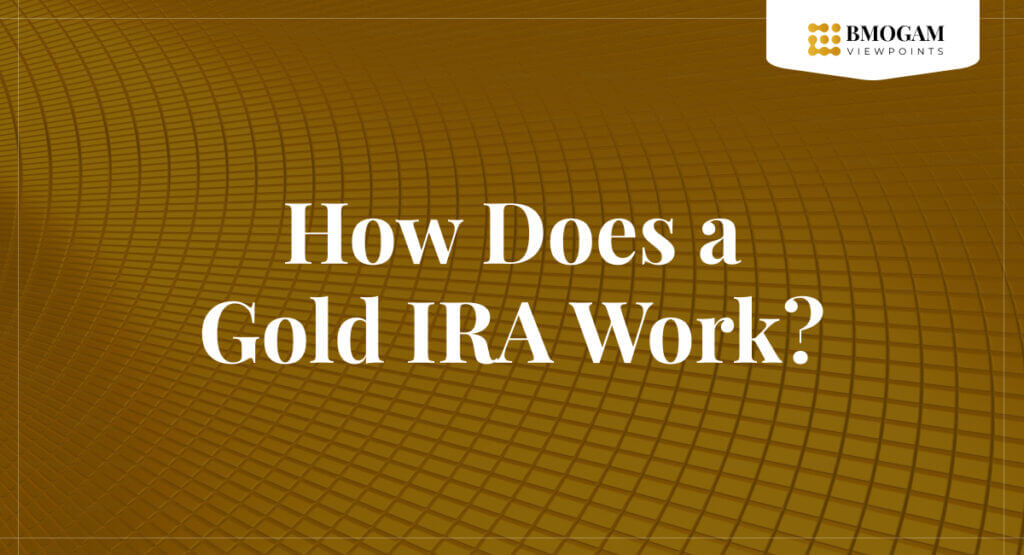Disclaimer: We are reader supported. We may be compensated from the links in this post, if you use products or services based on our expert recommendations. Please read our Advertising Disclosure.
Gold has always been a symbol of wealth, power, and stability. Throughout history, its shimmering allure has captivated civilizations, leading to wars, trade routes, and vast empires.
Today, in the modern financial world, gold still holds a significant place, albeit in different forms.
As we delve into the intricacies of physical gold and paper gold, we aim to provide you with a clear, unbiased perspective, drawing from our experience and expertise.
Before we get started with this review:
We understand how difficult it is to pick a company that you can trust with your hard earned savings. That's why we create informative and useful information to give you as much knowledge as possible to make the right decision.

We created a list of our highest recommended investment companies, to make comparing and choosing the company best suited to your needs as easy as possible.
Or...
Get a FREE Gold Investing Packet from our #1 recommendation:
Protect Your Wealth & Tax and Penalty Free!
Benefits of Investing in Gold
Gold, with its rich history and intrinsic value, has been a cornerstone of wealth for millennia. Its allure isn't just rooted in its lustrous beauty but in its proven financial resilience. Let's delve deeper into the multifaceted benefits of investing in this precious metal.
Portfolio Diversification
Gold's behavior in the financial market is unique. Unlike most assets, gold often moves inversely to stock markets. This counter-movement is particularly beneficial during stock market downturns.
When equities tumble, gold often shines brighter, acting as a counterbalance in an investor's portfolio. This inverse relationship is not just a financial theory but is rooted in historical data and real-world scenarios.
Through our practical knowledge and observations from financial experts, a diversified portfolio that includes gold is more resilient during economic downturns. It provides a cushion, reducing the overall impact of market volatility on an investor's holdings.
Risk Mitigation
Gold's reputation as a safe-haven asset is well-earned. In times of economic instability, when currencies falter and economies wobble, gold stands firm. This stability is not just due to its intrinsic value but also its historical significance.
Societies and economies have consistently placed value on gold, ensuring its worth remains intact even when other forms of currency falter. It's the asset people and nations turn to in times of crisis, reinforcing its role as a financial safety net.
This reliability makes gold a preferred choice for investors looking to mitigate risks, especially during uncertain times.
Inflation Defense
Inflation, the gradual increase in prices and the subsequent decrease in purchasing power, is a concern for every investor. As the cost of goods and services rises, the value of money diminishes.
However, gold has historically proven to be an effective shield against this economic phenomenon. When inflation rates soar, the real value of many investments, including cash, may decline. But gold's value often increases, ensuring that the purchasing power of the wealth invested in gold remains stable.
This protective quality of gold is not just a recent trend. Over the past 50 years, during high-inflation periods, gold prices have often surged, providing a refuge for investors from the eroding effects of inflation.
Asset Growth
Gold is not just a defensive asset; it has the potential for significant appreciation. Factors like geopolitical tensions can drive up the demand for gold. For instance, during periods of global uncertainty, be it due to wars, political upheavals, or international conflicts, gold prices often spike.
Investors, wary of the unpredictable nature of such events, seek the safety and reliability of gold. Our research, corroborated by historical data, indicates that geopolitical uncertainties often lead to a surge in gold prices.
This reactive nature of gold prices to global events offers investors an opportunity for asset growth, especially if they are attuned to global developments.

Furthermore, gold's demand isn't just driven by investors or global events. Cultural and societal factors play a significant role. In many countries, especially in Asia, gold is deeply embedded in the culture. Events like weddings, festivals, and other ceremonies often involve the exchange or gifting of gold, ensuring consistent demand.
This cultural significance, combined with its financial benefits, ensures that gold remains a sought-after asset, offering both protection and growth opportunities to investors.
What is Physical Gold?
Physical gold is the tangible form of this precious metal. It's the gold you can touch, feel, and store. Whether it's in the form of bullion bars, coins, or even jewelry, owning physical gold means you have a real, tangible asset in your possession.
Advantages of Physical Gold
Tangible Asset
Physical gold stands out in the digital age. In a world where assets are increasingly represented by bits and bytes, there's a unique satisfaction in holding a tangible asset. This isn't just about the weight of a gold bar or the shine of a coin; it's about the connection to a broader history and the physicality of wealth.
As indicated by our tests, there's a psychological comfort that comes with tangibility, knowing that your asset won't vanish with a computer glitch or be easily replicated.
No Counterparty Risk
One of the significant advantages of physical gold is its independence from third-party obligations. When you own a gold bar or coin, there's no risk of default or bankruptcy from another entity that could jeopardize your investment.
This stands in contrast to paper gold or other financial instruments, where your investment might be tied to the performance or reliability of another party. With physical gold, the value is inherent in the metal itself, not in someone else's promise or performance.
Historical and Cultural Value
Gold's significance transcends its monetary value. From ancient Egyptian pharaohs to modern-day wedding ceremonies, gold has cultural, historical, and even religious significance in societies around the world. Owning physical gold connects you to this rich tapestry of history and tradition.
In many cultures, gold jewelry is passed down through generations, becoming family heirlooms that carry stories and memories. This deep-rooted cultural value adds another dimension to the appeal of physical gold.
Direct Control
With physical gold, you're in the driver's seat. You have the autonomy to decide how to store your gold, whether in a home safe, a bank deposit box, or another secure location. You can choose to insure it, loan it, or even use it as collateral. And when it comes to selling, you can decide when, where, and how to sell, giving you flexibility and control over your investment.
Disadvantages of Physical Gold
Storage and Insurance Costs
While having direct control over your gold gives you flexibility, it also comes with responsibilities. Storing gold securely is crucial, and whether you choose a home safe or a bank deposit box, there are associated costs.
Additionally, insuring your gold against theft or damage can add to your expenses. Over time, these costs can add up, impacting the overall return on your investment.
Liquidity Concerns
While gold is a universally recognized asset, selling physical gold isn't always instantaneous. Depending on the form of gold you have (bars, coins, jewelry), its purity, and the current market conditions, finding a buyer and negotiating a fair price can take time. This can be a concern if you need to access funds quickly.
Potential for Theft or Loss
Physical assets, by their nature, are vulnerable to theft, loss, or damage. Gold, being a high-value item, can be a target for thieves. Ensuring proper security measures, like safes or secure storage facilities, is essential.
Additionally, in the event of natural disasters or accidents, physical gold can be at risk. While insurance can provide some coverage, it can't replace the sentimental value of heirloom pieces or the historical value of unique items.
What is Paper Gold?
Paper gold is a financial instrument that allows investors to gain exposure to the price of gold without physically owning the metal. At its core, paper gold is a promise or representation of gold ownership.
Unlike physical gold, which you can touch, see, and store, paper gold exists primarily on paper or in electronic form. There are several types of paper gold, each with its unique characteristics:
Advantages of Paper Gold
Ease of Transaction
One of the most significant advantages of paper gold is the simplicity of transactions. Whether you're buying shares of a gold ETF or entering into a futures contract, the process is streamlined, often requiring just a few clicks on a trading platform or a brief phone call to a broker.
This efficiency is especially beneficial for traders who wish to capitalize on short-term price movements in the gold market.
No Storage or Insurance Concerns
Holding physical gold comes with the responsibility of storing and insuring it. With paper gold, these concerns are eliminated. There's no need to rent a safety deposit box or purchase a home safe. Additionally, you won't have to worry about insuring your gold against theft or damage, as there's no physical metal to protect.
Diversification Options
Paper gold provides a plethora of investment options. From ETFs that track gold prices to futures contracts that allow for speculation on future price movements, investors have a wide range of choices.
This flexibility enables investors to tailor their gold exposure to their specific investment goals and risk tolerance. Based on our observations, the versatility of paper gold products often appeals to investors who might find physical gold too rigid for their strategies.
Potential for Leveraging
Leverage allows investors to control a large position with a relatively small amount of capital. Some paper gold instruments, especially futures contracts, offer significant leverage. This means that investors can potentially amplify their returns.
However, it's crucial to note that while leverage can magnify profits, it can also magnify losses. As such, it's vital to approach leverage with caution and a clear understanding of the associated risks.
Disadvantages of Paper Gold
Counterparty Risk
Every paper gold instrument involves a counterparty – the other side of the transaction. Whether it's the institution issuing a gold certificate or the other party in a futures contract, there's always a risk that the counterparty might default on their obligations.
If, for instance, the issuer of a gold ETF faces financial difficulties, it might impact the value of the ETF shares, potentially leading to losses for investors.
Lack of Tangible Ownership
There's a psychological aspect to owning physical assets. Holding a gold bar or coin provides a sense of security and tangibility that paper gold can't replicate. For many investors, especially those with a long-term perspective, the comfort of physically owning gold is paramount.
Complexity of Certain Instruments
While some paper gold instruments, like ETFs, are relatively straightforward, others, such as futures contracts, can be complex. Futures involve considerations like contract expiration, margin requirements, and rollover processes. For novice investors, navigating these intricacies can be challenging and might require a steep learning curve.
Which is Right for You?
Choosing between physical and paper gold boils down to your investment goals, risk tolerance, and personal preferences. While we believe that physical gold has an edge due to its tangible nature and historical significance, paper gold offers convenience and flexibility that shouldn't be overlooked.
As per our expertise, it's essential to weigh the pros and cons of each, considering your unique situation and objectives.
You can get a Free Gold Investors Guide from our top gold and precious metals company recommendation by clicking the link above or you can read our article of the top companies we reviewed this year:
>> CLICK HERE to read our list of the Top Gold Investing Companies. <<
Frequently Asked Questions
Is paper gold worth anything?
Yes, paper gold represents real gold and holds value in financial markets. However, its worth is tied to the promise or contract backing it.
What are the disadvantages of paper gold?
The primary disadvantages include counterparty risk, lack of tangible ownership, and potential complexities of certain investment vehicles.
Is paper gold backed by physical gold?
Some paper gold instruments, like certain ETFs, are backed by physical gold. However, not all paper gold products have a 1:1 backing.
Why is physical gold better?
Physical gold offers tangible ownership, historical and cultural significance, and no counterparty risk. Based on our firsthand experience, these factors often make it a preferred choice for many investors.

I started BMOGAM Viewpoints as a way to compile all my views on investing in one place. I own my home, have some real estate, and own a few stocks like most people, but what really drives my interest in investing is I have a strong love of precious metals, especially gold.



